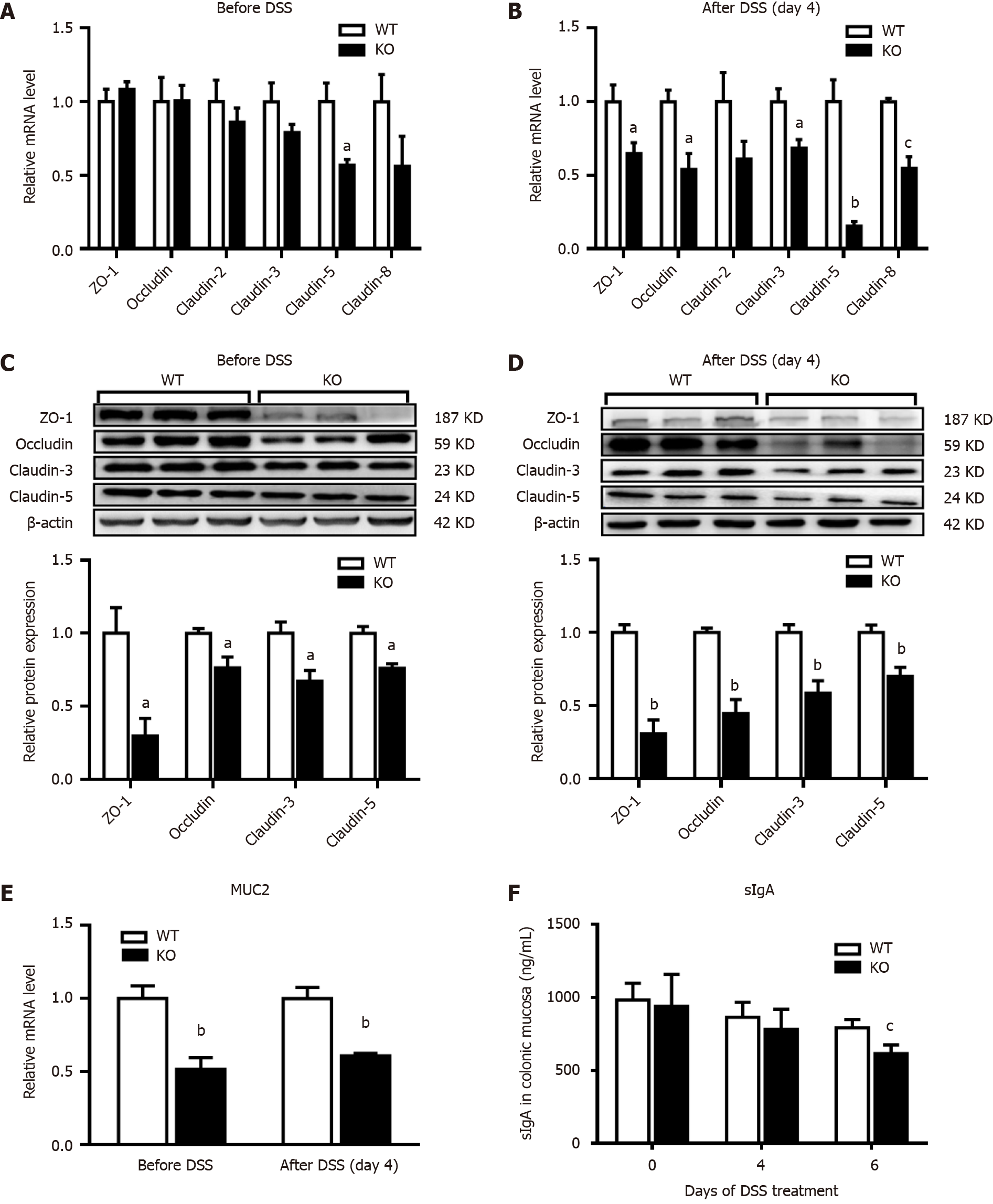Copyright
©The Author(s) 2024.
World J Gastroenterol. Mar 14, 2024; 30(10): 1405-1419
Published online Mar 14, 2024. doi: 10.3748/wjg.v30.i10.1405
Published online Mar 14, 2024. doi: 10.3748/wjg.v30.i10.1405
Figure 3 Changes in intestinal mucosal barrier proteins in mice after dextran sulfate sodium induction.
The mice were given normal drinking water before dextran sulfate sodium (DSS) treatment, and then the mice were given 3% DSS water for 4 d. Quantitative real-time reverse transcription-polymerase chain reaction and western blot analysis of intestinal barrier proteins were performed on homogenates of colonic mucosa tissues. A and B: The relative mRNA levels were determined relative to those in the wild-type (WT) group; C and D: The densities of the bands were determined relative to those in the WT group; E: Mucin 2 (MUC2) mRNA levels were examined in the homogenates of colonic mucosa tissues; F: The animals were euthanized on days 0, 4, and 6 after receiving DSS water. The levels of secretory immunoglobulin A (sIgA) in the homogenates of colonic mucosa tissues were examined by enzyme-linked immunosorbent assay. n = 3 per group. aP < 0.05, bP < 0.01, cP < 0.005 compared with WT mice. KO: Gene knockout; ZO-1: Zonula occludens-1.
- Citation: Tian Y, Li X, Wang X, Pei ST, Pan HX, Cheng YQ, Li YC, Cao WT, Petersen JDD, Zhang P. Alkaline sphingomyelinase deficiency impairs intestinal mucosal barrier integrity and reduces antioxidant capacity in dextran sulfate sodium-induced colitis. World J Gastroenterol 2024; 30(10): 1405-1419
- URL: https://www.wjgnet.com/1007-9327/full/v30/i10/1405.htm
- DOI: https://dx.doi.org/10.3748/wjg.v30.i10.1405









